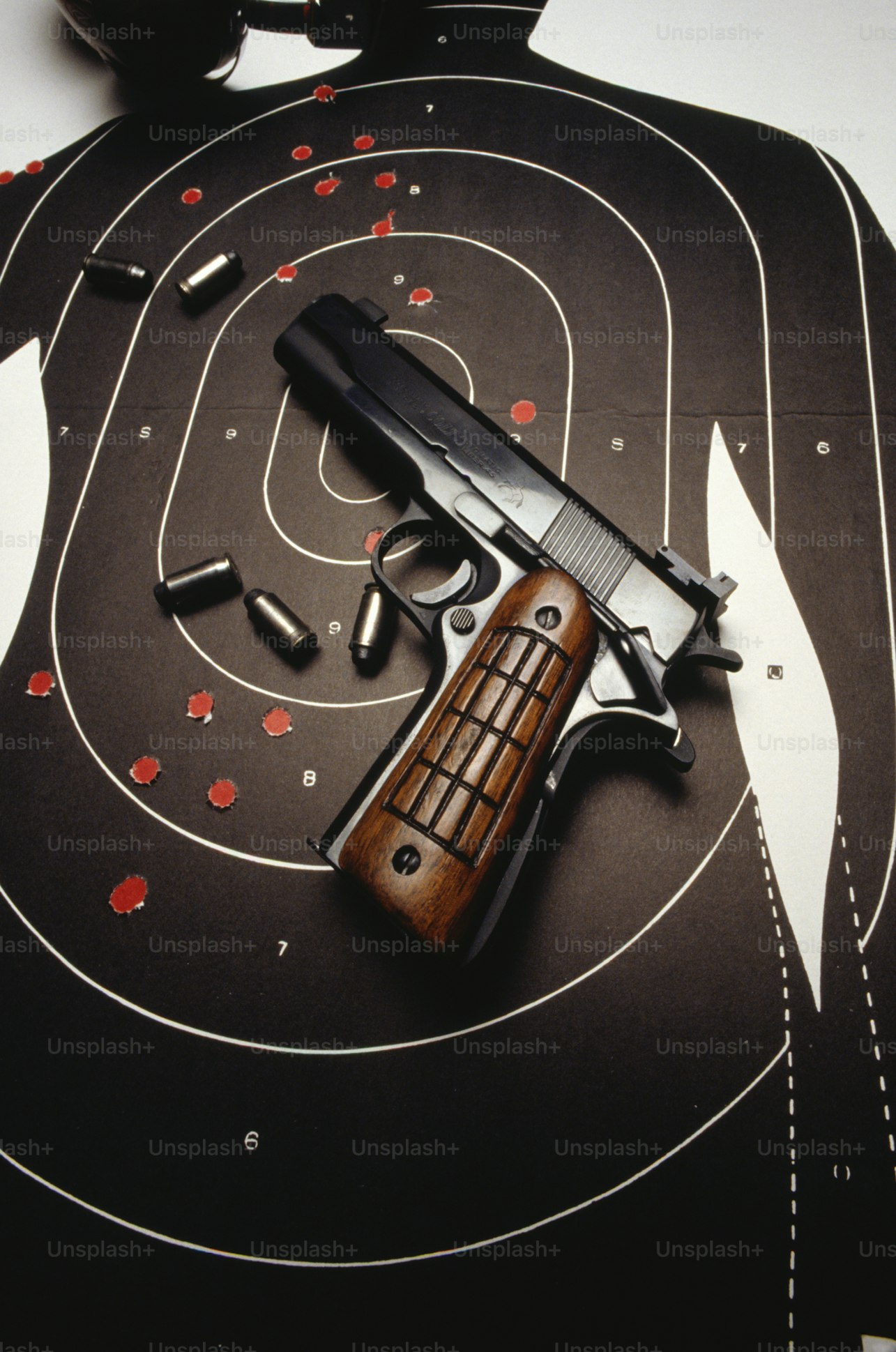A very valuable person to the world was recently killed, from the footage he was snipped amongst hundreds of people who were gathered around him, that's so much precision, it got me thinking why the world will create such powerful weapons just to end man's life. When you look at the history of firearms from the first spear to thermonuclear bombs and precision guided missiles that work with perfect proximity, one fact stands there, most of these instruments were designed with one specific purpose in mind, and that's to kill other human beings.
 Source
Source
It's not an accident; it's a mirror showing something raw about how we've organized power, fear, and ambition. To me, it doesn't feel like a win; rather, it feels like an indictment. I keep circling back to the question "Is this proof of our supremacy, of our cleverness and dominance, and is it really worth it?"
It makes odd sense because humans are social creatures that establish borders, tribes, and hierarchies. It is well known that those social structures lead to competition for resources, land, ideologies, and status. The arrow existed before the crossbow, the crossbow before gunpowder, and gunpowder before rockets. When competition devolves into violence, technology becomes a tool for violence. With every increase in lethality comes an increase in logistics, technical complexity, and calculating coldness. Scientists, engineers, and entire industries improve the methods to cause pain and death more effectively.
That combination of brain, tool, and intention is what people sometimes point to as "supremacy", the ability to shape the world to our will, even when that shape is the shape of destruction. But put "supremacy" under a different light, the same intelligence that gives us the power to end lives also provides us with the power to cure diseases, compose symphonies, map genomes, and bring a child safely into the world. Since their technical genius is being used for destructive purposes, the abilities needed to create a more deadly weapon are not morally neutral. It's similar to appreciating a storm's strength while ignoring the deluge it causes.
Furthermore, the intended target is never spared the consequences. Human-killing weapons have an impact on ecosystems, infrastructure, families, and cultures. Destroyed cities lead to refugee crises and chronic trauma; conflict-burned land may not be suitable for farming for generations, altering the destiny of plants and animals as well. Even precision strikes have flaws; along the lines of error, civilian lives, children, and entire futures are lost. Therefore, the harm is planetary even though the engineering achievement may be human-centric.
There's also this school of thought that "weapons are a proof of supremacy." This has made most Leaders and nations sometimes treat their military capacity as a status symbol, an outward sign that they shouldn't be messed with. Nuclear arsenals have become trophies in a global game of world power, but have they ever thought of it this way, trophies that can annihilate millions raise the question "What kind of supremacy is worth mutual extinction?"
If "being the best" demands the capacity to destroy what makes life worth living, then the whole idea should collapse into absurdity. What makes the subject heavier is the human psychology behind it; fear and mistrust are fertile soil for weapon development. If you believe that another group could or will harm you, you'll invest in ways to prevent that. Deterrence theory partially rests on this: you build weapons not to use them, but to convince others not to use theirs; that's a brittle peace, dependent on rational actors and perfect communication. History shows us how thin that skin can be; accidents, miscalculations, and rogue decisions have made near catastrophes of this brittle balance more than once.
Is it worth it, then? I have a consistent uneasiness, a burden so heavy on my chest, not a single tidy response. There are claims that deterrence prevented full-scale wars from intensifying, that defense saved lives on some fronts, and that some weapons have prevented worse outcomes. These are legitimate claims that merit consideration, but those same weapons require human, financial, and environmental resources that should be used to create the kind of security that eliminates the need for weapons in the first place—stable economies, healthcare, education, diplomacy, and the gradual but challenging process of fostering trust among communities.
Additionally, the moral ledger insists on determining who creates and who perishes. The development of weapons is concentrated in a few countries and industries, and the poor and vulnerable are frequently disproportionately affected. Another ugly aspect of this imbalance is that many bear the cost while the few typically boast of their superiority. We can demonstrate our ability to protect life, advance knowledge, and restore the environment if we're seeking a more genuine form of evidence of our impact. If only funds for harmful technologies were diverted to climate regulations, space exploration, public health, or natural disasters, think of the human ingenuity that could be unleashed. Those are kinds of supremacy that don't humiliate life to make a point; they celebrate and protect it.
On a personal level, thinking about this makes me small and solemn. I am struck not by the grandeur of our destructive capabilities but by the fragility of what they threaten. Supremacy measured by how effectively we can kill feels bankrupt next to the quiet, cumulative work of making things livable for the next generation. We can be brilliant and destructive, that is proven. The real test is whether we can be clever and life-affirming.
So if the question is whether lethal invention proves our supremacy, my answer would be YES, in a technical sense, but not in any sense that should make us proud. If we are truly supreme, let it be because we are better at preserving life than ending it. That, to me, would finally Looks like progress.
Posted Using INLEO